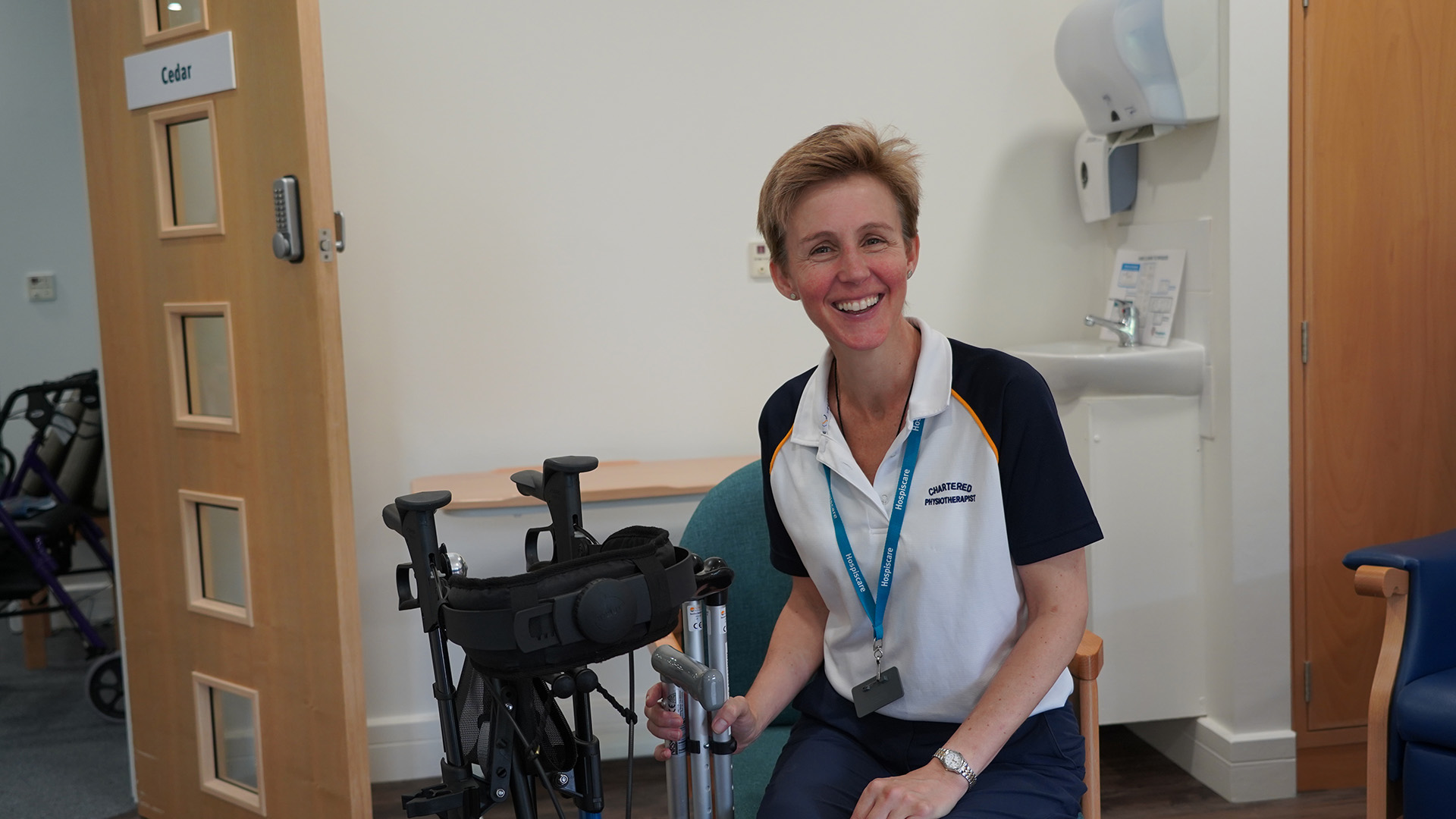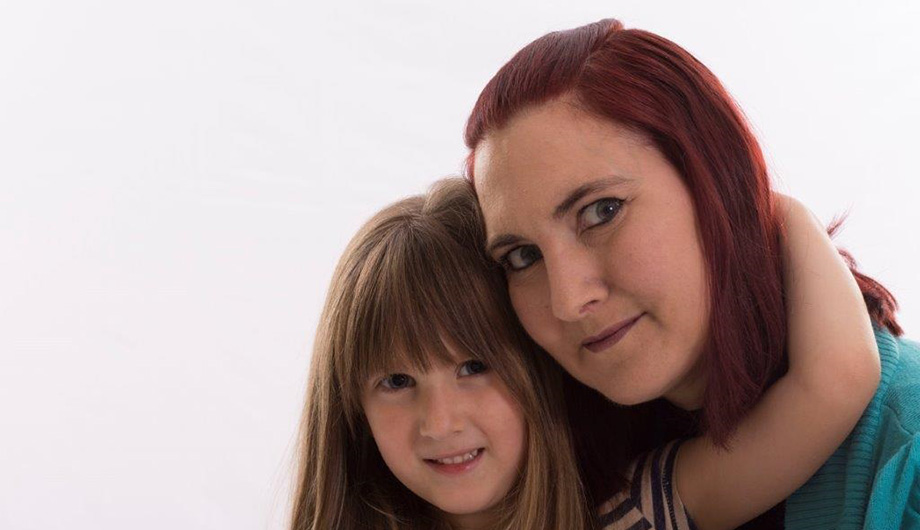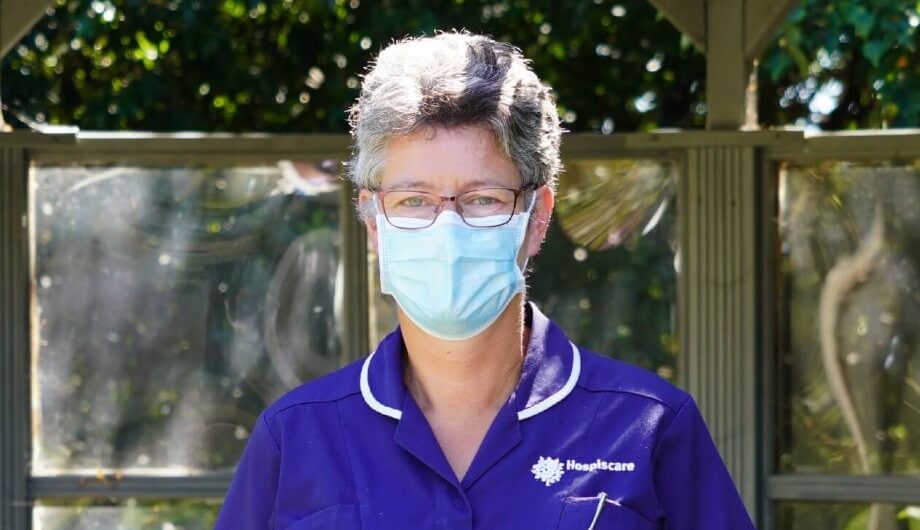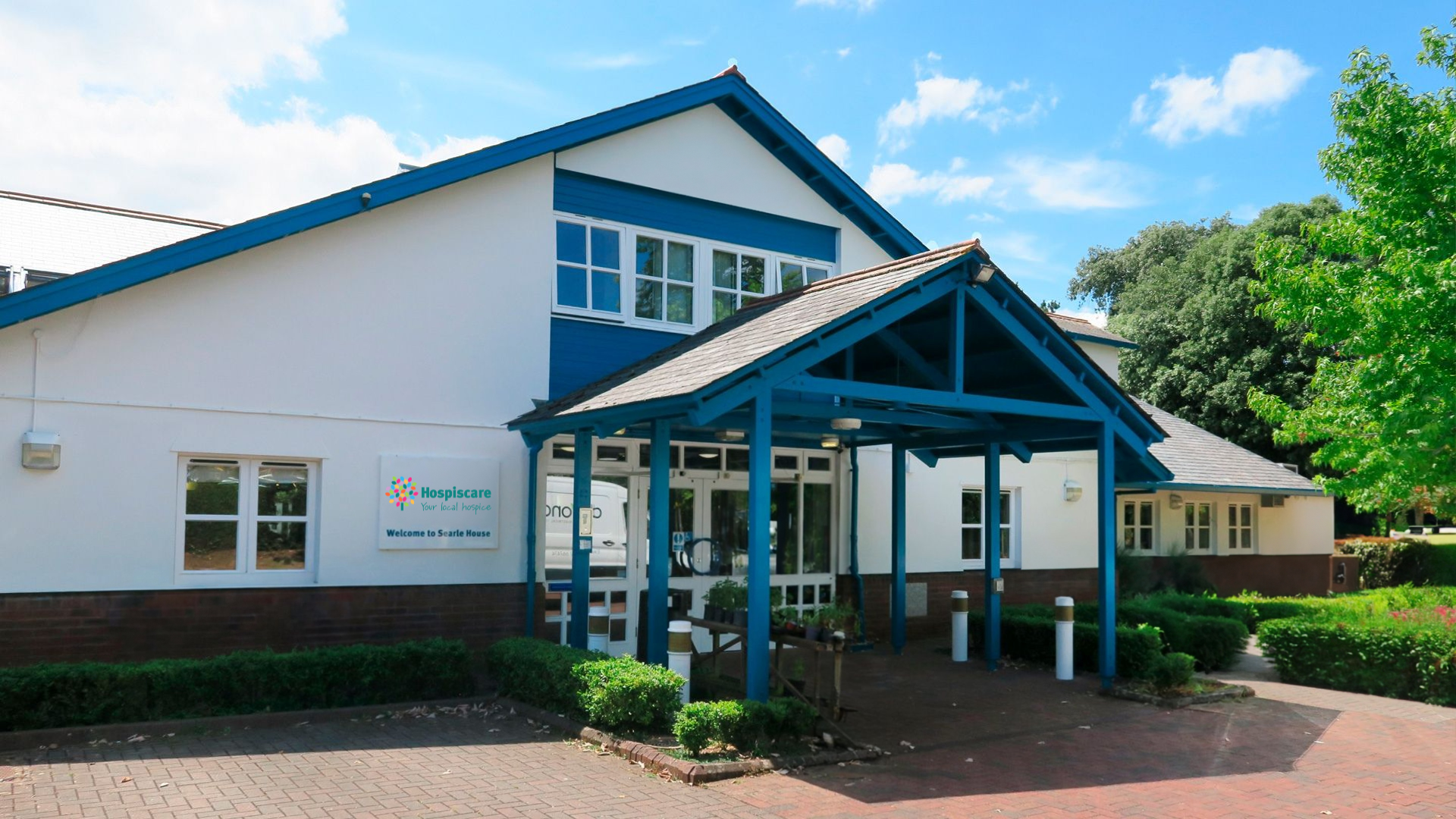Trained physiotherapist Carolina Read is at the forefront of patient wellbeing here at Hospiscare. She is keen to encourage our clinical staff to be curious about our patients to support their wellbeing.
Carolina’s role as Wellbeing Project Physiotherapist is part of the Healthy Aging Project bid. She began working at Hospiscare in June 2019 and her approach focuses on keeping patients well for longer.
As I arrived in day hospice, Carolina was supporting a patient with neuropathy (nerve damage in the body that can lead to loss of balance and coordination as well as muscle weakness, particularly in the feet). Carolina had assessed the patient’s risks, particularly that he was prone to falling and catching his foot on objects, and worked with him to show colleagues how to walk with him safely and understand where the risks lie.
An important part of Carolina’s role at Hospiscare is to provide internal training and advice to staff in order to increase opportunities for mobility and exercise in our hospices. As a trained physiotherapist, Carolina explains that it is her role to “assess risks and find out what is possible”. An equally vital part of her role is patient wellbeing. Carolina continues:
“It’s all about inspiring patients by finding different ways of working with them. I want patients to try different physical activities so that they feel valued. It’s not about telling patients what they can or can’t do, it’s about giving them the chance to be the initiator and lead on what they want.”
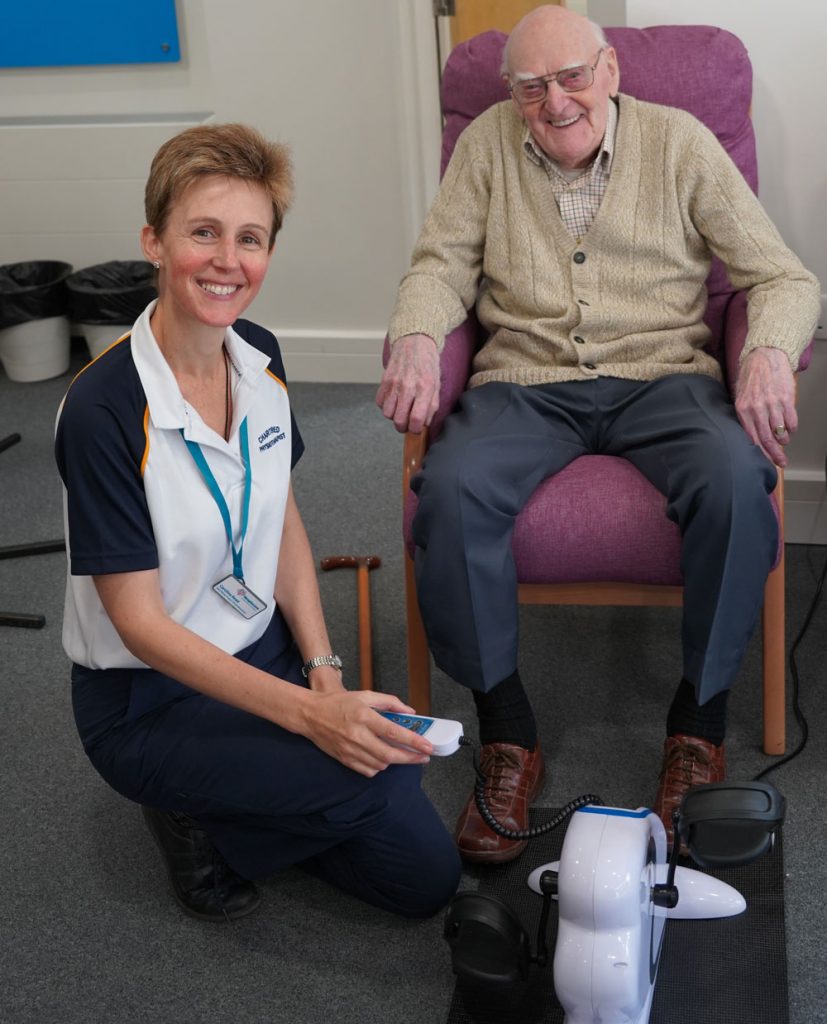
Based at Searle House, our Exeter hospice, Carolina carries out individual tailored assessments for patients in order to find out what is making them feel more restricted than they need to be. If someone has had a fall at home, or is fearful of falling, then this can be talked about to address preventative strategies and any cautions to mobilising. Carolina is then able to put together a plan, not only for staff to work with the patient in the hospice, but also for the patient to carry out at home with the support of their carer or family. Carolina explains:
“It’s amazing how well people can feel when they are able to move around. Simple activities like throwing and catching a ball when seated can bring out their inner child.
“Many cancer patients receive treatment that inhibits their physical activity so it’s all about finding ways to bring exercise and movement back into their lives. In the day hospice setting, I can support patients to try out hand-held and leg weights, for example, or try an exercise bike. Patients often go home beaming with achievement!”
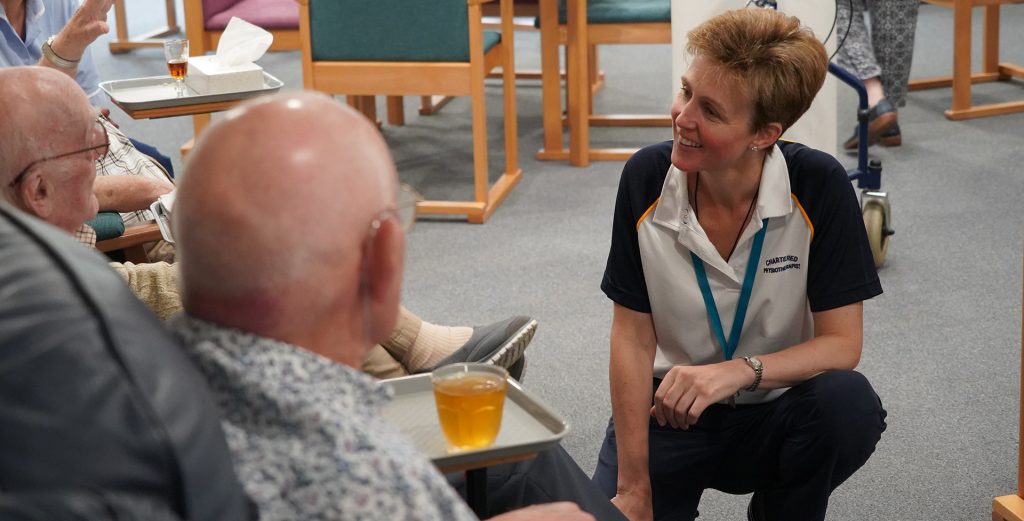
To promote physical activity with our Hospiscare patients, Carolina assesses the equipment that is available to them, for example walking aids. She recalls assessing the mobility of a patient who had a walking frame that was too small for him. Carolina removed the frame and took the patient by the hand and walked with him for nearly a mile. The frame was a hindrance to his ability to be active. Carolina found the right-size stable frame for his family to use with him and the family were very grateful. The patient had suffered from bad back pain but with the new frame, this was no longer a problem for him. This symptom was caused by the too-small frame, rather than by his condition. Carolina explains:
“When you change something in a walking aid, the effect is profound, like finding the right size shoe after years of wearing the wrong size.”
Although Carolina works with terminally ill patients here at Hospiscare, her focus is upon rehabilitation. Her work at Searle House centres on keeping patients well for longer. With wellbeing at the forefront of her role, Carolina endeavours to find out what is making life more enjoyable for our patients and promoting this by finding ways of making these things possible. Carolina concludes:
“It is so important that patients feel listened to. Curiosity is very important when communicating with patients; saying ‘I’m curious…’ or ‘I wonder…’ opens up so many conversations. We all need to be curious.”

